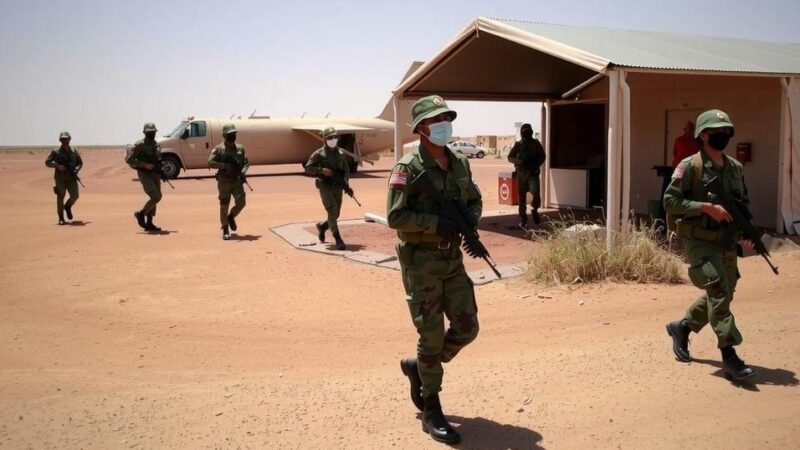Tropical Cyclone Chido brought severe winds and rains to Mozambique, damaging over 5,800 homes and affecting critical infrastructure. Following its landfall on December 15, the cyclone continues towards Malawi and Zimbabwe. Communication and power outages complicate the response efforts, and assessments of damage are ongoing.
Tropical Cyclone Chido made landfall in Mozambique on December 15, unleashing formidable winds of up to 80 km/h, torrential rains exceeding 250 mm within a 24-hour period, and thunderstorms. The Southern African Development Community (SADC) reports that Chido has caused significant destruction, with over 5,800 homes destroyed, 41 classrooms partially damaged, and power infrastructure downed, impacting approximately 2,500 families. These figures are anticipated to rise as damage assessments continue.
In the city of Pemba, communication has become challenging due to frequent power outages and sporadic mobile service. Residents are conserving their mobile battery power to maintain contact for essential purposes. Before impacting Mozambique, Cyclone Chido wreaked havoc in Mayotte, where it struck as a Category 4 cyclone with winds exceeding 220 km/h, obliterating entire neighborhoods.
As of December 16, Chido continues its path inland towards Malawi, maintaining a moderate storm intensity. The cyclone’s core has traversed southern Malawi, producing strong winds and significant rainfall between 100 to 150 mm. It is expected to re-enter Mozambique, passing through Tete, Sofala, and Manica provinces before dissipating near Zimbabwe on December 17. Authorities advise residents to stay informed through their national meteorological services regarding evolving weather conditions.
Tropical cyclones are significant weather phenomena that form over warm ocean waters. They can cause devastating impacts on coastal regions, particularly in countries like Mozambique, which is particularly vulnerable due to its geographic location. The Southern African Development Community (SADC) plays a crucial role in disaster response and assessment, coordinating relief efforts and providing updates on the situation. Cyclones can lead to considerable damage to infrastructure, homes, and public services, necessitating ongoing support and aid for affected communities.
In summary, Tropical Cyclone Chido has severely impacted Mozambique, causing widespread destruction and challenging living conditions. With reported damages to homes and crucial infrastructure, the full extent of the devastation is still being evaluated. As Chido continues its path, the situation remains critical, particularly for regions in Malawi and Zimbabwe, where residents are advised to monitor weather updates closely. Immediate support and relief efforts are vital in aiding those affected and rebuilding the damaged areas.
Original Source: www.vaticannews.va







